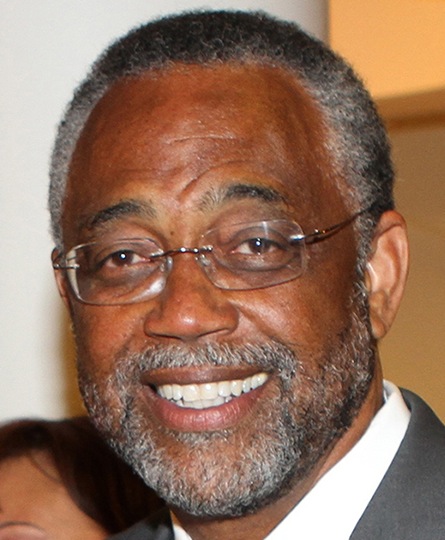By Ural Garrett
Contributing Writer
LOS ANGELES — The three Black members of the City Council are calling for an antiracist framework for governance and investment moving forward in the city.
The motion introduced by Councilmen Mark Ridley-Thomas, Curren Price and Marqueece Harris-Dawson June 18 hopes to tackle three core issues for Black Los Angelenos, including police brutality, homelessness and unemployment.
“It is incumbent upon those of us who sit in positions of authority to work hard to dismantle systemic racial barriers within the entities for which we are responsible,” Ridley-Thomas said in a statement. “This motion is intended to be disruptive, catalytic and inclusive. It is no longer sufficient to just support diversity and inclusion initiatives, we must move to identify solutions to advance racial equity and this is the first step.”
The motion, which was seconded by Councilwoman Nithya Raman, notes that Black people, who account for 9% of the city’s population, represent:
• A third of those who are injured or killed by law enforcement, according to a 2018 report by the California Department of Justice.
• 34% of the population experiencing homelessness as of 2019.
• And half of those who filed for unemployment during the COVID-19 pandemic, putting them at risk of long-term unemployment, according to a 2020 report by the California Policy Lab.
The proposal drew support from Mayor Eric Garcetti.
“There is no question that work remains to close the racial gaps that exist in our country when it comes to wealth, health and education,” Garcetti said in a statement. The motion, he added, “builds on the equity work we’re doing in Los Angeles, and I’m proud to work alongside council members who are committed to confronting structural racism and fulfilling America’s promise to all its people.”
Local Black organizations like the National Assembly of American Slavery Descendants Los Angeles) applauded the motion, saying they hope it improves the way the citycollects data for the various African American communities as well.
“Disaggregated data between the various ethnicities in the Black community is vital as it will reveal socio economic differences among the various ethnic groups,” said Tiffany Quarles, an advisory board member of the local chapter of the National Assembly of American Slavery Descendants. “This motion should also be used to strengthen the push for federal reparations.”
Calling this a critical turning point, Councilman Price said: “If we are ever to reconcile with the past wrongdoings done to the Black community, it is our duty to push for measures that ensure there is a more equitable and fair distribution of services that addresses systemic inequities and erases color lines.
“We cannot sit back and watch history continue to repeat itself. We want to put an end to the cycle here and now,” he added.
Councilman Marqueece Harris-Dawson added: “The city of Los Angeles has a responsibility to ensure African-Americans and underserved communities have equal access to the services, resources and opportunities needed to thrive. The impact of economic instability can last a lifetime, and identifying the barriers to financial stability is necessary in promoting racial equity across Los Angeles.
“This motion is a step in the right direction in equipping the city with the tools needed to implement policies, programs and services that are equitable for all people.”
If passed by the City Council, the measure would direct the city’s Civil + Human Rights and Equity Department to produce an audit and provide a report to City Council within 60 days.
The report would include findings on:
• Potential barriers that Black Angelenos and underserved communities may face to enroll in and access city services and programs.
• Potential barriers that Black Angelenos and underserved communities may face to secure procurement and contracting opportunities.
• And the sufficiency of institutional resources that city departments, agencies and commissions have to effectively advance equity and increase investments in underserved communities.
The motion also would have the department develop a “Plan To Address Barriers To Economic Stability Among African Americans.”
That plan would include:
• Recommendations for improving existing policies, processes and practices that may prevent Black Angelenos from entering and advancing city departmental career ladders.
• And ecommendations for strategies that would develop and enhance culturally tailored opportunities to increase Black Angelenos’ access to career pathways, encourage entrepreneurship and promote small business growth across the city.
Finally, the motion would have the city attorney draft an ordinance to strengthen the mayor’s “Racial Equity in City Government” executive directive by establishing a Racial Equity Task Force within the Civil + Human Rights and Equity Department to collect and assess data and present the findings to the City Council; require all city department general managers submit racial equity plans and identify at least one goal each year to strengthen the department’s capacity for cultural competency and vigilance to reduce racial stigma, inequality and implicit bias; and require all city department general managers to designate a racial equity dfficer, who will create annual work plans that are made available publicly.
Porsha Cropper, senior deputy of legislation, education and workforce development for Ridley-Thomas advised Los Angeles citizens interested in supporting the motion to submit public comment on the city clerk’s website or call in during public comment to voice their support.
“The public calling in to voice their opinion to lend their support makes a difference because other council members hear that too,” Cropper said. “So it’s just not Ridley-Thomas, Price and Harris-Dawson and Nithya Raman who seconded it. That’s just four members and we need the other members to do so as well. It’s not just South L.A. that cares about this, but the entire city.”
“We cannot sit back and watch history continue to repeat itself. We want to put an end to the cycle here and now.”
— City Councilman Curren Price
City News Service also contributed to this story.











